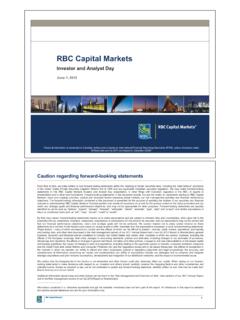Transcription of Creative Accounting: Unethical Accounting and …
1 Journal of Business & Economic Policy Vol. 2, No. 1; March 2015 39 Creative Accounting : Unethical Accounting and Financial Practices Designed To Boot Earnings and To Meet Financial Market Expectations Dr. Kingsley Wokukwu Assistant Professor of Accounting Stillman College 3601 Stillman Blvd, Tuscaloosa, Al 35401 Royal Super Sonic Enterprises Abstract This paper discuses financial shenanigans and earnings management and what motivate managers to engage in Unethical financial practices. This paper explores the role Accounting standards play in the Creative Accounting practices by the corporate manager.
2 The excessive financial scandals and earnings restatements in recent years has left many investors questioning whether reported earnings can ever be free of management manipulation. The author looks at the role Accounting rules and standards, auditors and external factors play in earnings management and revenue recognition. The paper finds that some of the improprieties relating to earnings management stems from an outdated Accounting standards, complex corporate financing arrangements, preservation of executive compensation incentives and corporate pressure to meet earnings projection. It is apparent that managers have a strong interest in the corporate bottom line and the managers can choose Accounting policies from a set of policies from Generally Accepted Accounting Principles (GAAP) to meet or beat the market expectation, it is natural that the management would choose policies that will help them achieve their objectives.
3 Statement on Auditing Standard (SAS) No 82 distinguishes fraud from error on the basis of whether the underlying action of management that results in misstatement of financial statement is intentional or unintentional. Security Exchange Commission Staff Accounting Bulletin ((SAB) No 101 provides specific guidelines for revenue recognition. Firms go as far as they can to recognize revenues that lack economic substance. International Accounting Standard Board (IASB) IFRS 15 and US Based Financial Accounting Standard Board(FASB) ASU 2014-09 published a new revenue standard. The new standard is as a result of a convergence project between the two Boards.)
4 1. Introduction The role of Securities and Exchange Commission (SEC) and Financial Accounting Standard Board (FASB) and International Accounting Standard Board (IASB) is to establish the Generally Accepted Accounting Principles (GAAP)and improve standards of financial reporting for the guidance and education of the public which includes issuers of financial statements, auditors, and users of the published financial information. Transparency in financial reporting is of the essence because individuals, potential investors, creditors and regulators make investment decisions based on firms published financial reports. Recent events in the economy coupled with scandals have raised questions about transparency and disclosure practices of some firms.
5 One of the stumbling blocks is the seemingly diverse component of the standards, interpretations and the application of the standards. FASB issues standards that are difficult to read and understand and create tendency to compromise when finding a solution to difficult Accounting problem because the attempt to compromise can lead to the use of judgment. Grover (1992) states that some big corporations are taking advantage of Accounting rules to improve their economic outlook these firms are taking big write-offs so that in the future they can add some of that reserve to their operating income if their initial write-off was too large.
6 Dean (1993) postulates that corporate interest influence many of the FASB standards, along with its funding and membership. He suggests that one way to make FASB to update Accounting standards and regulation is to make Securities and Exchange Commission (SEC) responsible for appointment of board members. ISSN 2375-0766 (Print), 2375-0774 (Online) Center for Promoting Ideas, USA 40 The publicized Accounting fraud by Qwest, Enron, Worldcom, HealthSouth, Global Crossing, Adelphia, Tyco etc generated media frenzy on abuses in the application of Accounting rules by corporate managers to boost earnings within the confine of the Generally Accepted Principles (GAAP).
7 The Government Accountability Office (GAO) report expresses concern on corporate Accounting improprieties that begun to surface in the late 1990 s and is critical of the number of publicly held firms that restated their financial statement. The GAO reports noted that the number of firms that restated their earnings are on increase and alarming. The report also states that the publicly held companies that restated their financial statements increased by 147% from January 1997 through June 2000. The GAO report listed four factors that caused firms to use questionable practices: 1) Corporate pressure to meet earnings projections and thus maintain stock prices during and after the market expansion of 1990 s.
8 2) Perverse executive compensation incentives. 3) Outdated Accounting and rule based standards, and 4) Complex corporate financing arrangements. The GAO postulates that based on the number of financial re-statements as of June 30, the GAO expects increase in restatement to exceed 170 percent by the end of the year. In response to earnings manipulation that goes on in corporate arena, the Securities and Exchange Commission (SEC) released Staff Accounting Bulletin No 99 (SAB 99) which declares that the principle-like qualitative standard that would govern financial statement. The Committee on Capital Market Regulation report in 2006 criticized SAB 99 as vague.
9 They argue that the qualitative standard of financial reporting requires assessments of a wide range of factors which includes subjective motivation for financial misstatements, and is directed at the problems of manipulation the result from a rule like quantitative standard. Aggressive corporate managers could give a sudden pinch to their earnings at will to meet market expectation. The Committee on Capital Market Regulation recommends that the Securities and Exchange Commission revises its guidance on materiality for financial reporting as it was traditionally defined in terms of a-five-percent of pretax income threshold. The qualitative and quantitative standards are breeding ground and manifest a blank check for earnings management and manipulation.
10 A sharp decline in stock prices in 2001, slight recovery in September 2001, and a prolonged drop that began 2002hits it lowest ebb is a reflection of deterioration of market price related to the numerous reports of corporate earnings management schemes Earnings Management and Manipulation Earnings management is an outright Accounting fraud practice designed by management to record bogus, inflated, revenue, and earnings smoothing to meet earnings projections, financial market, and analyst expectations. Earnings management has a negative impact on earnings quality and dilutes the transparency of financial reporting. The flexibility, limitations, and inconsistencies that are built into Generally Accepted Accounting Principles (GAAP) have given the managers the latitude of making Accounting decisions that will drive revenue results.




